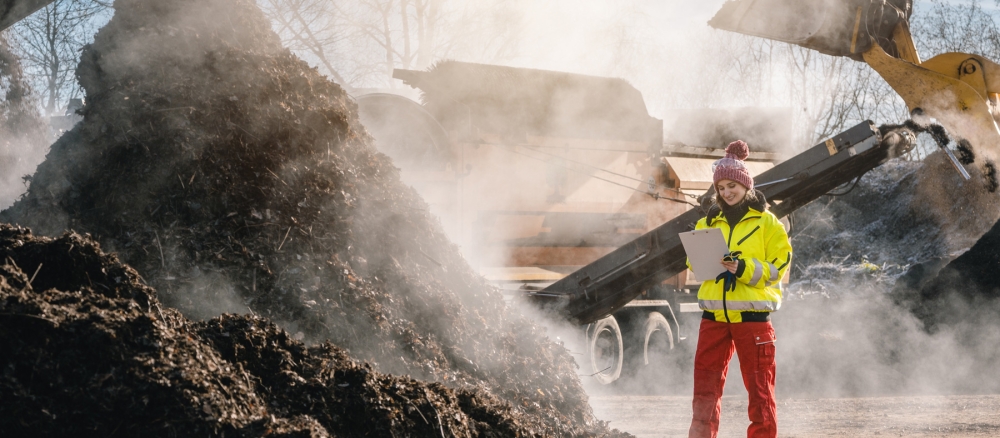Nearly two-thirds of the trash in Minnesota’s landfills can be reused or recycled. If the current trends continue, nearly eight million tons of additional waste will be sent to landfills over the next 20 years. Reducing the amount of waste going to landfills will improve public health, conserve energy and natural resources, and reduce pollution and greenhouse gas emissions. This past legislative session, the MPCA asked for a strong investment to change that.
During the 2023 legislative session, legislators passed more than a dozen funding and policy proposals to address food waste, organics, recycling market development, and wood waste. Each proposal supports tackling Minnesota’s growing waste problem, creating jobs, saving Minnesotans money, and improving our environment at the same time.
Key waste initiatives passed in 2023
Waste prevention and reduction. Minnesota is bulging with waste and despite ongoing efforts to prevent it, nearly half of our state’s waste is disposed of in a landfill or at a waste-to-energy facility. To help improve waste prevention, reuse, and recycling efforts, $25.8 million in grants and loans will go to help local counties, Tribal governments, organizations, and businesses meet their waste management goals. This funding will help advance wasted food and food rescue efforts, recycling market development projects, expand markets, improve planning for wood waste, and more.
More staff resources to support solid waste facilities. The MPCA oversees many of the waste, recycling, and disposal activities in Minnesota. But currently, there is a growing permitting, closure, and inspection workload that exceeds staff capacity. To help prevent potential contamination from landfills and other waste facilities, $1.12 million will be appropriated each year to support eight additional staff members in the MPCA’s solid waste program. The new staff will tackle the backlogs in inspection, permitting, and landfill closure work, and will provide solid waste planning and technical assistance to Minnesota counties.
Better hazardous waste materials oversight. Hazardous waste is a potentially significant source of pollution that can contaminate air, water, and soils if not handled, stored, and disposed of properly. To help better assist and regulate organizations in Greater Minnesota that handle these materials, $420,000 will be appropriated each year to support three additional staff members in MPCA’s hazardous waste and solid waste programs. The added staff will provide timely inspections of facilities that generate hazardous waste, support the permitting process, improve the management of data and information submitted by regulated facilities, and lead responses to pollutants such as per- and polyfluoroalkyl substances (PFAS) and 1,4-dioxane.
Expanded recycling program to reduce waste. Minnesota’s waste management hierarchy prioritizes waste reduction and reuse over other waste management options. To better align with the waste hierarchy, waste reduction and reuse efforts can now be funded through MPCA’s Greater Minnesota Waste Reduction, Reuse, Recycling and Composting Grants. This change in eligible activities will help reduce waste before it must be recycled or composted and will extend a product’s useful life, benefiting children and families in need by redirecting usable resources to places where there is a demand.
